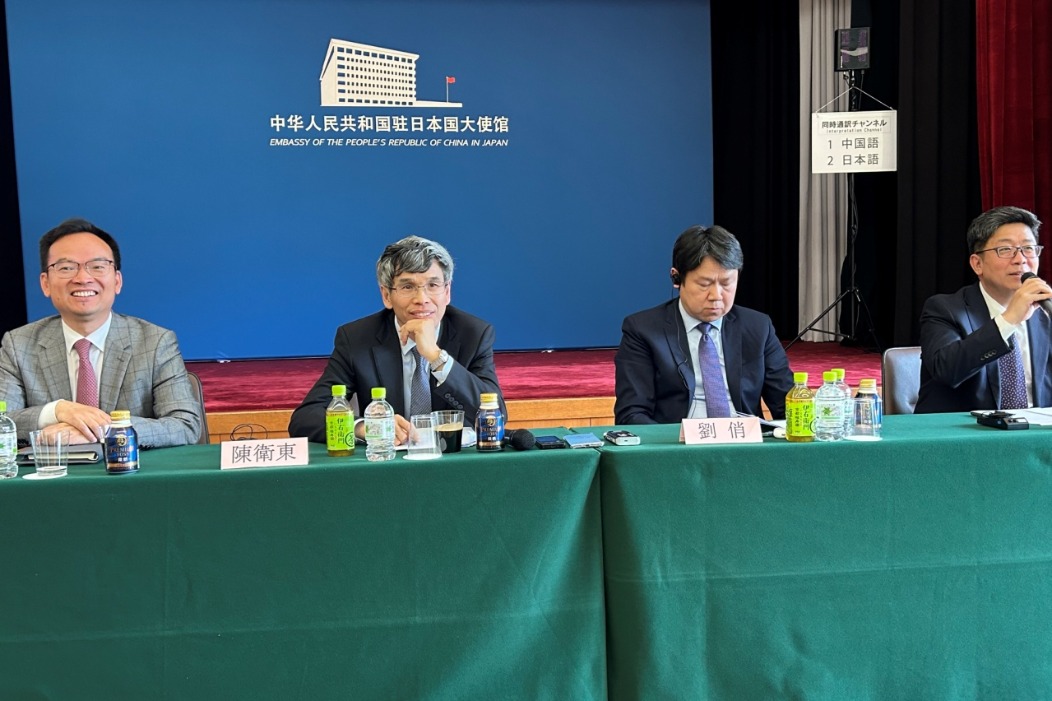Journalists astounded by China's clever green development


Journalists from Central and Eastern European countries hailed the philosophy of green development which features the Chinese path to modernization, saying it promotes sustainable and high-quality development and meets people's aspiration for a better life.
They made the observation when visiting Yucun village in Anji county on Saturday. The village in east China's Zhejiang province is where the "two mountains" theory was first put forward in 2005, calling lucid waters and lush mountains invaluable assets comparable to the gold and silver of legend.
"I came to Zhejiang province for the very first time in 1994 and the great transformation I can see over the past three decades is a miracle," said Leszek Slazyk, founder and editor-in-chief of Poland's chiny24 website.
He said Zhejiang province used to be a place for heavy industries with polluted water and air; "But now the province has become a place where you hope to spend time with families and friends and relax here, which is a fascinating change."

Discarding an outdated mode of development, Anji has shut down the mines, restored the ecology and vigorously developed rural tourism, said Yu Xiaoping, deputy Party Secretary of Yucun village.
Yucun village, transforming the advantages of ecological resources into economic development advantages and securing a win-win of economic growth and environmental protection, is a showcase of Anji's ecological conservation, he added.
It was granted, among another 44 villages from 32 countries, the title of "Best Tourism Villages" by the United Nations World Tourism Organization in 2021.
Slazyk lauded China's modernization which pursues common prosperity, saying the case of Yucun village proves the wise concept could deliver benefits to local people and beyond.
Brem-Nagy Marton, a Hungarian journalist, appreciated China for its long-term thinking. "Although protecting the environment may sacrifice economy in the short term, it is conducive to sustainable development."

On the same day, the delegation also went to Hongmiao village of Anji county. When they saw the scene, journalists from the CEE countries collectively exclaimed in surprise.
"This place is incredible, beautiful and fantastic," said Monika Krawczyk, a Polish travelouge producer.
They enjoyed their time in a Deep Blue Coffeehouse, which was repurposed from an abandoned limestone mine and is now surrounded by a blue lake, high cliffs and lush trees which are just like Nordic sceneries.
Having a face-to-face talk with young entrepreneurs, the delegation got to know that those entrepreneurs take advantage of the sound rural ecological environment and create tourism consumption scenarios, which attracted a large number of tourists.
The entrepreneurs expressed their commitment to a vision of common prosperity and encouraged more college students to return to their hometowns to start businesses and revitalize the rural areas.
During the Qingming Festival holiday, the number of visitors reached as high as 20,661 and a single coffee shop sold 8,818 cups of coffee in a single day, setting a new national record for coffee sales.
Marton, a Hungarian journalist, said the Deep Blue Project was a good idea for rural revitalization which proves that local people take good care of the environment.
"It's pretty awesome to transform deserted mines to something livable and lively," he said.
It's hoped to have more time to get immersed in China, he said, adding that he would definitely share his experience with people when getting back to Hungary.



































